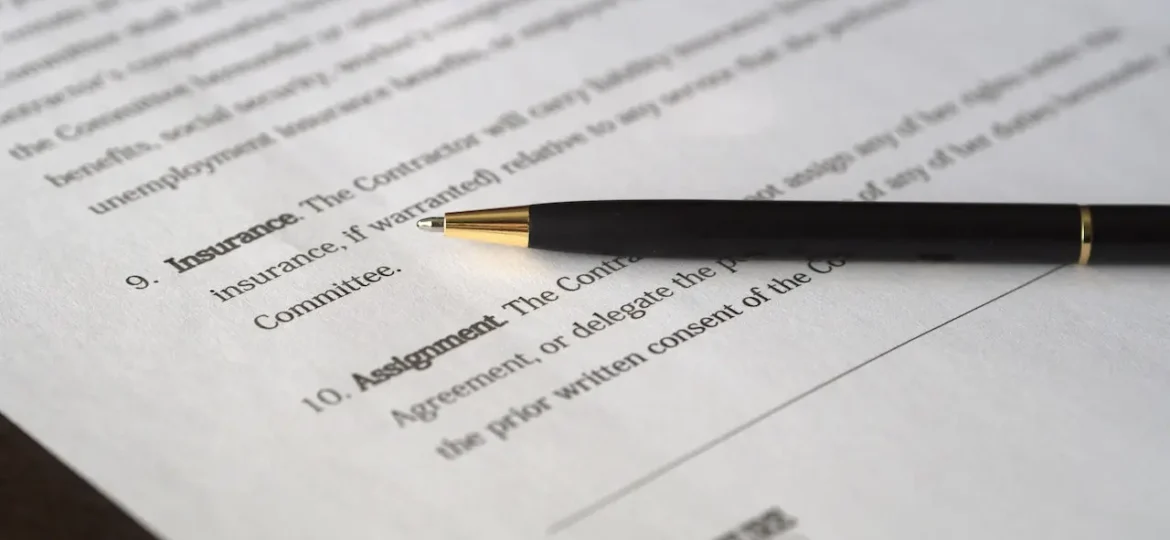
Commercial conflicts are an unavoidable aspect of life in the fast-paced world of business. These disagreements may take many forms, including a disagreement over a contract, a battle with a supplier, or a legal squabble with a rival. Often, hiring a commercial lawsuit lawyer is the key to navigating these treacherous seas. Lawyers with commercial legal knowledge are available to help companies in understanding and resolving these conflicts in the heart of Chatswood. This blog article will delve into the complex realm of commercial conflicts, shining light on how they might be avoided, handled, and the financial consequences involved.
Free 15-minute consultation for Commercial Dispute matters
with our Commercial Lawyers.
What are the Different Types of Commercial Disputes and How to Avoid Them
Commercial disagreements, whether large or minor, may be a thorn in the side of any firm. Understanding the various sorts and how to prevent them is critical for keeping things running smoothly. Take a closer look:
- Contract Disputes: Contract disputes often develop when one party fails to meet their contractual duties. This might result in misunderstandings, financial loss, and legal issues. Using a commercial lawyer in Chatswood may assist in the creation of clear and straightforward contracts, reducing the likelihood of conflicts.
- Intellectual Property Disputes: In today’s competitive economy, protecting intellectual property is critical for organizations. Patents, trademarks, copyrights, and trade secrets may all give rise to disputes. To prevent such problems, firms should contact with a commercial litigation lawyer to secure adequate intellectual property protection and registration.
- Employment Disputes: Employee problems, such as wrongful termination, discrimination, or salary disputes, might result in legal action. Having clear employment practices in place and receiving legal assistance from a Chatswood lawyer who specializes in commercial law may help to prevent these conflicts.
- Shareholder and Partnership Disputes: Differences of opinion among shareholders or partners may lead to major commercial disputes. Transparency, clear communication, and legal advice from a commercial lawyer may help keep these disagreements from worsening.
- Real Estate Disputes: Real estate transactions may be complicated, and disagreements over property ownership, leases, or land usage might develop. Using a commercial litigation lawyer who specializes in real estate law may assist you through these complex concerns.
Understanding and avoiding commercial conflicts is about maintaining a healthy corporate climate, not simply legal compliance. Businesses may concentrate on development and success rather than legal fights by detecting possible hazards and adopting preemptive actions.
Alternative Dispute Resolution (ADR) Methods
Litigation in commercial disputes may be an expensive and time-consuming procedure. Alternative Dispute Resolution (ADR) procedures are more adaptable and, in many cases, less confrontational. Here are some popular ADR strategies that a commercial litigation lawyer or Chatswood lawyer could recommend:
- Mediation: In mediation, a neutral third party known as a mediator promotes discussion between disagreeing parties. The mediator’s duty is not to make decisions, but to assist the parties in reaching a mutually acceptable conclusion. Using a commercial lawyer who is knowledgeable in mediation might result in faster and more agreeable results.
- Arbitration: Unlike mediation, arbitration entails the appointment of an arbitrator who renders a binding ruling on the issue. It is a more official procedure, similar to a court trial but often more expedited. When parties seek a final settlement without going to court, arbitration might be a good option.
- Negotiation: Perhaps the most direct type of ADR is negotiation. To establish an agreement, the parties must communicate directly or via their Chatswood attorneys. Understanding, empathy, and excellent communication are required for effective negotiating.
- Collaborative Law: In this strategy, the parties and their attorneys agree to settle the problem without going to court. It encourages a cooperative atmosphere in which all parties collaborate to reach a settlement while being advised by their respective commercial attorneys.
- Conciliation: Conciliation, like mediation, includes a neutral third party who aids in the resolution of the issue. The conciliator plays a more active role in providing ideas and steering the parties to an agreement.
ADR is not a one-size-fits-all solution. The option is determined by the nature of the disagreement, the parties’ relationship, and the intended result. Consultation with a commercial litigation lawyer may assist in determining the best technique for the unique scenario.
Legal Costs & Financial Implications
Legal issues aren’t only about right and wrong; they may also have serious financial consequences. Here are some crucial considerations:
- Legal expenses: Hiring a commercial lawyer or a Chatswood lawyer incurs legal expenses, which may rapidly mount up, particularly in long-running conflicts. It is critical to understand the pricing structure and budget appropriately.
- Court Fees: If a disagreement is resolved in court, there will be extra fees such as filing fees, expert witness fees, and other relevant charges. These may be a significant financial burden.
- Time is Money: In business, time is money. Dispute resolution time may distract resources away from key corporate tasks, affecting productivity and profitability.
- Costs of Reputation: Protracted conflicts may impair a company’s reputation, harming consumer trust and future business chances. A qualified commercial litigation lawyer may assist in controlling the disagreement in such a manner that reputational harm is minimized.
- Emotional Costs: Disputes may be emotionally draining for everyone concerned, resulting in stress and damaged relationships. Consider the human component, and seek resolution via compassionate and professional legal counsel, to make the process less burdensome.
Conclusion
Commercial disputes are an intricate and complicated component of business. There’s a lot to consider, from comprehending the many kinds to seeking alternate resolution techniques and weighing the cost repercussions. A commercial litigation lawyer or Chatswood lawyer with commercial law skills may be a great friend on this road. Businesses may convert potential disputes into opportunities for development and cooperation by taking preemptive actions, getting expert advice, and addressing both the legal and human sides.

